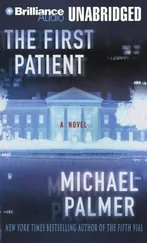Michael Ondaatje - The English Patient
Здесь есть возможность читать онлайн «Michael Ondaatje - The English Patient» весь текст электронной книги совершенно бесплатно (целиком полную версию без сокращений). В некоторых случаях можно слушать аудио, скачать через торрент в формате fb2 и присутствует краткое содержание. Жанр: Старинная литература, на русском языке. Описание произведения, (предисловие) а так же отзывы посетителей доступны на портале библиотеки ЛибКат.
- Название:The English Patient
- Автор:
- Жанр:
- Год:неизвестен
- ISBN:нет данных
- Рейтинг книги:4 / 5. Голосов: 1
-
Избранное:Добавить в избранное
- Отзывы:
-
Ваша оценка:
- 80
- 1
- 2
- 3
- 4
- 5
The English Patient: краткое содержание, описание и аннотация
Предлагаем к чтению аннотацию, описание, краткое содержание или предисловие (зависит от того, что написал сам автор книги «The English Patient»). Если вы не нашли необходимую информацию о книге — напишите в комментариях, мы постараемся отыскать её.
The English Patient — читать онлайн бесплатно полную книгу (весь текст) целиком
Ниже представлен текст книги, разбитый по страницам. Система сохранения места последней прочитанной страницы, позволяет с удобством читать онлайн бесплатно книгу «The English Patient», без необходимости каждый раз заново искать на чём Вы остановились. Поставьте закладку, и сможете в любой момент перейти на страницу, на которой закончили чтение.
Интервал:
Закладка:
“It has been a long time, David, since I thought of anything to do with a man.”
After a week of the Sikh sapper’s presence around the villa they adapted to his habits of eating. Wherever he was—on the hill or in the village—he would return around twelve-thirty and join Hana and Caravaggio, pull out the small bundle of blue handkerchief from his shoulder bag and spread it onto the table alongside their meal. His onions and his herbs—which Caravaggio suspected he was taking from the Franciscans’ garden during the time he spent there sweeping the place for mines. He peeled the onions with the same knife he used to strip rubber from a fuze wire. This was followed by fruit. Caravaggio suspected he had gone through the whole invasion never eating from a mess canteen.
In fact he had always been dutifully in line at the crack of dawn, holding out his cup for the English tea he loved, adding to it his own supply of condensed milk. He would drink slowly, standing in sunlight to watch the slow movement of troops who, if they were stationary that day, would already be playing canasta by nine a.m.
Now, at dawn, under the scarred trees in the half-bombed gardens of the Villa San Girolamo, he takes a mouthful of water from his canteen. He pours tooth powder onto the brush and begins a ten-minute session of lackadaisical brushing as he wanders around looking down into the valley still buried in the mist, his mind curious rather than awestruck at the vista he happens now to be living above. The brushing of teeth, since he was a child, has always been for him an outdoor activity.
The landscape around him is just a temporary thing, there is no permanence to it. He simply acknowledges the possibility of rain, a certain odour from a shrub. As if his mind, even when unused, is radar, his eyes locating the choreography of inanimate objects for the quarter-mile around him, which is the killing radius of small arms. He studies the two onions he has pulled out of the earth with care, aware that gardens too have been mined by retreating armies.
At lunch there is Caravaggio’s avuncular glance at the objects on the blue handkerchief. There is probably some rare animal, Caravaggio thinks, who eats the same foods that this young soldier eats with his right hand, his fingers carrying it to his mouth. He uses the knife only to peel the skin from the onion, to slice fruit.
The two men take a trip by cart down into the valley to pick up a sack of flour. Also, the soldier has to deliver maps of the cleared areas to headquarters at San Domenico. Finding it difficult to ask questions about each other, they speak about Hana. There are many questions before the older man admits having known her before the war.
“In Canada?”
“Yes, I knew her there.”
They pass numerous bonfires on the sides of the road and Caravaggio diverts the young soldier’s attention to them. The sapper’s nickname is Kip. “Get Kip.” “Here comes Kip.” The name had attached itself to him curiously. In his first bomb disposal report in England some butter had marked his paper, and the officer had exclaimed, “What’s this? Kipper grease?” and laughter surrounded him. He had no idea what a kipper was, but the young Sikh had been thereby translated into a salty English fish. Within a week his real name, Kirpal Singh, had been forgotten. He hadn’t minded this. Lord Suffolk and his demolition team took to calling him by his nickname, which he preferred to the English habit of calling people by their surname.
That summer the English patient wore his hearing aid so he was alive to everything in the house. The amber shell hung within his ear with its translations of casual noises—the chair in the hall scraping against the floor, the click of the dog’s claws outside his room so he would turn up the volume and even hear its damn breathing, or the shout on the terrace from the sapper. The English patient within a few days of the young soldier’s arrival had thus become aware of his presence around the house, though Hana kept them separate, knowing they would probably not like each other.
But she entered the Englishman’s room one day to find the sapper there. He was standing at the foot of the bed, his arms hung over the rifle that rested across his shoulders. She disliked this casual handling of the gun, his lazy spin towards her entrance as if his body were the axle of a wheel, as if the weapon had been sewn along his shoulders and arms and into his small brown wrists.
The Englishman turned to her and said, “We’re getting along famously!”
She was put out that the sapper had strolled casually into this domain, seemed able to surround her, be everywhere. Kip, hearing from Caravaggio that the patient knew about guns, had begun to discuss the search for bombs with the Englishman. He had come up to the room and found him a reservoir of information about Allied and enemy weaponry. The Englishman not only knew about the absurd Italian fuzes but also knew the detailed topography of this region of Tuscany. Soon they were drawing outlines of bombs for each other and talking out the theory of each specific circuit.
“The Italian fuzes seem to be put in vertically. And not always at the tail.”
“Well, that depends. The ones made in Naples are that way, but the factories in Rome follow the German system. Of course, Naples, going back to the fifteenth century …”
It meant having to listen to the patient talk in his circuitous way, and the young soldier was not used to remaining still and silent. He would get restless and kept interrupting the pauses and silences the Englishman always allowed himself, trying to energize the train of thought. The soldier rolled his head back and looked at the ceiling.
“What we should do is make a sling,” the sapper mused, turning to Hana as she entered, “and carry him around the house.” She looked at both of them, shrugged and walked out of the room.
When Caravaggio passed her in the hall she was smiling. They stood in the hall and listened to the conversation inside the room.
Did I tell you my concept of Virgilian man, Kip? Let me …
Is your hearing aid on?
What?
Turn it—
“I think he’s found a friend,” she said to Caravaggio.
She walks out into the sunlight and the courtyard. At noon the taps deliver water into the villa’s fountain and for twenty minutes it bursts forth. She removes her shoes, climbs into the dry bowl of the fountain and waits.
At this hour the smell of hay grass is everywhere. Bluebottles stumble in the air and bang into humans as if slamming into a wall, then retreat unconcerned. She notices where water spiders have nested beneath the upper bowl of the fountain, her face in the shade of its overhang. She likes to sit in this cradle of stone, the smell of cool and dark hidden air emerging from the still empty spout near her, like air from a basement opened for the first time in late spring so the heat outside hangs in contrast. She brushes her arms and toes free of dust, of the crimp of shoes, and stretches.
Too many men in the house. Her mouth leans against the bare arm of her shoulder. She smells her skin, the familiarity of it. One’s own taste and flavour. She remembers when she had first grown aware of it, somewhere in her teens—it seemed a place rather than a time—kissing her forearm to practise kissing, smelling her wrist or bending down to her thigh. Breathing into her own cupped hands so breath would bounce back towards her nose. She rubs her bare white feet now against the brindle colour of the fountain. The sapper has told her about statues he came across during the fighting, how he had slept beside one who was a grieving angel, half male, half female, that he had found beautiful. He had lain back, looking at the body, and for the first time during the war felt at peace.
Читать дальшеИнтервал:
Закладка:
Похожие книги на «The English Patient»
Представляем Вашему вниманию похожие книги на «The English Patient» списком для выбора. Мы отобрали схожую по названию и смыслу литературу в надежде предоставить читателям больше вариантов отыскать новые, интересные, ещё непрочитанные произведения.
Обсуждение, отзывы о книге «The English Patient» и просто собственные мнения читателей. Оставьте ваши комментарии, напишите, что Вы думаете о произведении, его смысле или главных героях. Укажите что конкретно понравилось, а что нет, и почему Вы так считаете.












